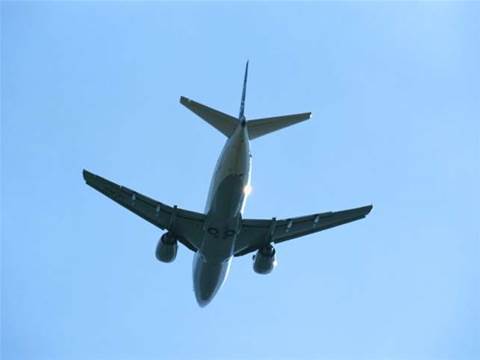IT services company The Frame Group has unveiled some of the networking technology it has deployed as part of the $330 million international terminal upgrade at Melbourne Airport.
Today the group showed off some smarts deployed within Melbourne Airport's expanded international terminal, T2.
The expanded terminal utilises some of Cisco's latest products, including digital media signage, which the airport intends to extend throughout all terminals.
Included in the expansion was the deployment of 800 Cisco IP phones and approximately 100 802.11n Wi-Fi access points to provide wireless connectivity to pilots and ground crew. The Wi-Fi access points were to also be used by passengers for paid Wi-Fi internet access.
The Frame Group said the Wi-Fi access would allow information transfer between flight control and an airplane before it arrived at a gate and in turn speed-up flight turn-round times.
"All the new generation aircrafts - the airbus A380's and the like - have Wi-Fi in them," Roger Barlow, national sales manager at The Frame Group said. "Those planes can broadcast that information as they're coming into the airport".
Barlow said airlines such as Qantas and Singapore Airlines would be able to take advantage of the feature.
"They'll have a plane fly in from London, and as it comes in to taxi they'll push a button in the aircraft and that will transmit information to the ground crew," he said.
Information transmitted would include catering information, water and waste levels as well as fuel levels, Barlow said.
The Frame Group's fitout also included 400 flight information displays. The displays would be used to share up-to-date flight and gate information, news, directional guidance and emergency messaging in arrival and departure areas, The Frame Group and Cisco said in a joint statement.
The screens deployed would consume 80 percent less power than the previously deployed PC-based screens and would automatically power down when flights had departed and in areas cleared of passengers.
The 150 airport tenants (retailers) and airlines would also be able to benefit from the expansion with wireless connectivity being available to purchase from the airport. Tenants would also be able to tap into the IP phone network and advertisements on screens throughout the airport at cost.
Mark Funston, information technology manager of Melbourne Airport, said the airport aimed to "achieve significant productivity gains and operational efficiencies" from its new tech toys.
The Frame Group would provide ongoing support for the network infrastructure for two years, Barlow said. He said he hoped this would be extended when up for renewal.
Barlow said the group has plans to take the flight information displays "into bus terminals and taxi areas and all sorts of places".





_(21).jpg&h=142&w=230&c=1&s=1)
_(27).jpg&h=142&w=230&c=1&s=1)






.jpg&w=100&c=1&s=0)











